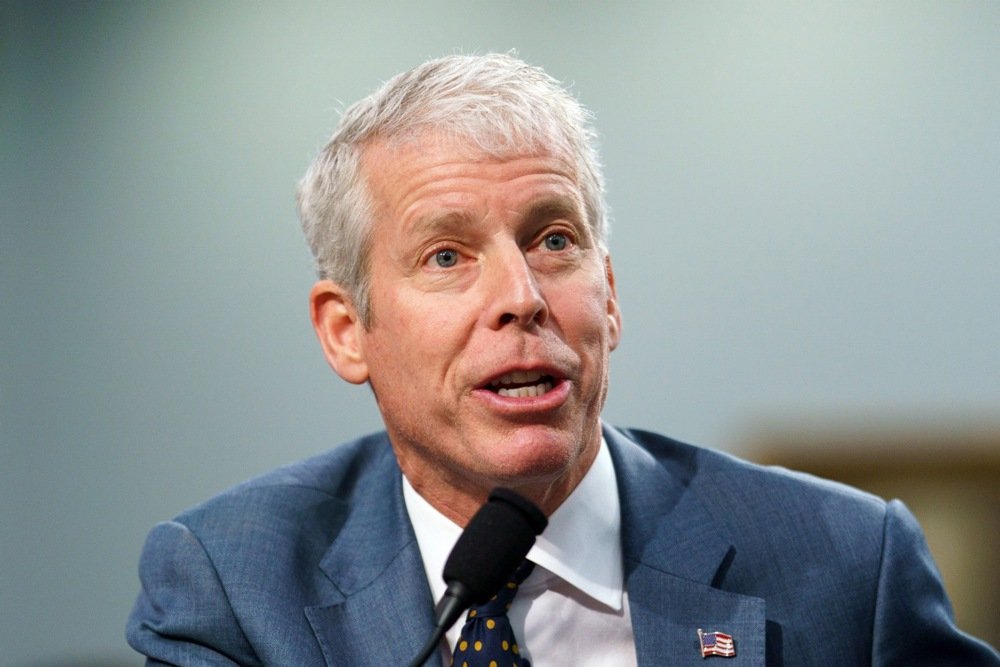The EU’s pledge to buy $750 billion of American oil, gas and nuclear over the next three years is part of a general reset in global energy relations, US Energy Secretary Chris Wright told Euractiv.
“I think it’s a long-term change,” Wright said in an interview in Brussels on Friday. “When you buy energy, particularly liquefied natural gas, there’s a huge amount of infrastructure that’s built.”
“This isn’t going to be three and a half years and it’ll all be over,” Wright said after his first meetings with senior EU leaders since Ursula von der Leyen struck a trade deal with Donald Trump at the end of July.
His message was at odds with that of the European Commission, which said on Thursday that Brussels sees the pact as a temporary measure.
“In the short-term, we need to meet our energy demands, and in this context, we are looking at increasing the purchase of certain energy products from the US,” a Commission official said.
Von der Leyen gave a speech in Strasbourg this week declaring that Europe should seize the moment to develop “clean homegrown energy.”
Win-win
Wright has portrayed closer EU-US energy ties as a mutually beneficial arrangement that will help the EU phase out Russian fossil fuels.
“Part of the dialogue and part of the message we brought is during the Trump administration the capacity for the United States to export LNG will double, not increase by 10 or 20 percent,” Wright told Euractiv.
In exchange for capping trade tariffs at 15%, the EU executive has pledged that Europe will import on average $250 billion worth of US fossil fuels and nuclear technology during each of Trump’s last three years in office.
The figure has been dismissed by many analysts as unrealistic, but Wright insisted it was possible, arguing that two-thirds of the headline figure can be met by replacing imports of Russian energy.
That can come, he said, both directly in the form of LNG, and indirectly by blocking imports of refined products like petrol and jet fuel via countries like Turkey and India, which continue to buy large volumes of Russian crude.
Meeting the EU-US trade deal’s targets would require far more rapid action in the EU than implied by its 2027 exit deadline to end all dependency on the Kremlin for energy imports.
American alternative
The EU’s energy policies are also tied up in ongoing diplomatic efforts to end Russia’s war on Ukraine.
Diplomatic sources have indicated that Trump intervened in talks between the EU’s sanctions envoy David O’Sullivan and US officials in Washington earlier this week. Reports suggest Trump has demanded that the EU slap 100% tariffs on China and India, countries which continue to buy Russian energy.
Wright would not be drawn on the extent to which Washington may be applying diplomatic pressure on Brussels to impose tariffs on those countries.
“We did discuss multiple ways how can we work together, the United States and EU, to bring the Russian-Ukraine war to an end,” the US energy secretary said.
Wright was clear on one thing, however: the US is positioning itself as a central supplier of oil and gas, and not just to the EU.
“The huge American abundant energy resources allow us to be a key energy supplier to our allies around the world that previously have been buying oil and gas and other technologies from adversaries,” he said.
Nikolaus J. Kurmayer and Eddy Wax contributed reporting.
(jp)




